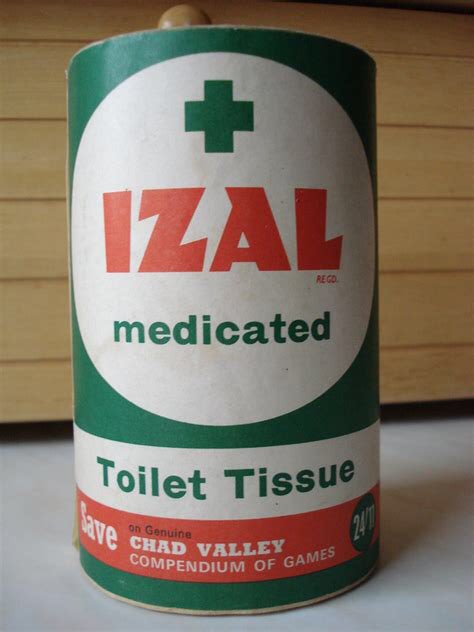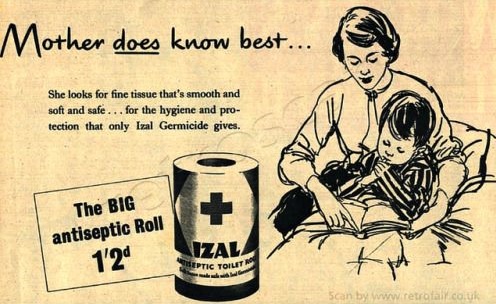
Here’s a topical post because it involves disinfectant and toilet paper… and a brand that was once a brand leader. I’m talking about Izal, made here in Sheffield, famous for that waxy disinfectant toilet paper that many of us grew up with.
The origins go back to 1793 when George Newton and Thomas Chambers became partners in the Phoenix Foundry and, along with financier Henry Longden, they signed a 21-year-lease with Earl Fitzwilliam, the landowner, to extract coal and ironstone from the Thorncliffe Valley near Chapeltown.
A hundred years after coal production began it turned to Jason Hall Worrall, a chemist, to analyse the oil produced by coke and subsequently develop a germicide oil which, when mixed with an emulsifying agent, dispersed through any liquid.
The resulting product was trialled in hospitals and became known as Thorncliffe Patent Disinfectant before being called Izal – reputed to be an anagram of Liza, Worrall’s sister.
“Izal – the new non-poisonous disinfectant and prevention of infection. Izal prevents infection in Cholera, Smallpox, Diphtheria, Influenza, Scarlet Fever, Swine Fever, Malaria, Worms, Typhus, and Typhoid Fever, and practically covers the whole field of infectious diseases.”
The claims seem unbelievably wild today, but Izal attracted favourable reports from bacteriologists.

One of its products was a ‘scratchy’ toilet paper, impregnated with Izal disinfectant, and given away free to local authorities which bought bulk supplies of hygiene products.
Izal Toilet paper appeared in hospitals, schools and public buildings (‘Government Property’) around the country and wasn’t sold to the public until 1922.
In 1924, William Heath Robinson, a cartoonist and illustrator, was employed by Newton Chambers to provide amusing illustrations on the toilet rolls, and in the 1930s there were rhymes printed on each sheet. During World War 2, the sheets were printed with a cartoon of Adolph Hitler, very popular with the public but less so with officials.
Shiny on one side, rough on the other, experience showed that the paper was better at smearing rather than cleaning, and children of a certain age remember it better as being a useful musical instrument (comb and paper), as well as an excellent tracing paper.
Alongside the toilet Rolls, the Izal brand extended to San Izal Disinfectant, San Pine Disinfectant, soaps, shampoos, shaving foams, Polly kitchen rolls and even Izal lozenges and mints, in all about 137 products.

In 1968, Newton Chambers unsuccessfully tried to buy rival manufacturer Jeyes (makers of Jeyes Fluid and Parazone), and in 1973 the whole Newton Chambers business was acquired by Sterling-Winthrop (Sterling Industrial) which continued Izal production at Thorncliffe until 1981.
Restrictions of the use of poisons, and increased competition, lessened Izal’s market dominance, although it was still going strong in the 1970s. With a certain irony, the Izal brand was sold to Jeyes in 1986 and production stopped completely in 2010.
Ten years’ later, Izal Medicated Toilet Tissue is back on the shelves (or not as recent experience shows) but is still tainted by bad memories.
“The Clint Eastwood of loo paper – it’s rough, it’s tough and takes no shit.”
